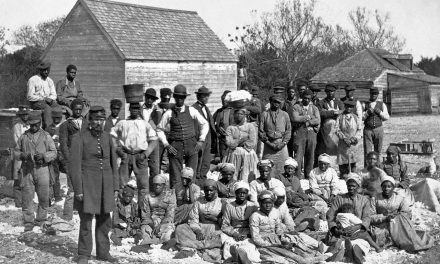
Among the things Americans say they are looking forward to most when pandemic-related restrictions ends is “having dinner in a restaurant with friends.” But if the restaurant industry does not support higher wages, there will be fewer restaurants for customers to return to.
There is an unprecedented shortage of job applicants for restaurant jobs. In a new survey this week by One Fair Wage of more than 2,800 workers, more than half (53%) reported that they are thinking about leaving restaurants. More than three-quarters of workers surveyed (76%) said they are leaving restaurants because of low wages and tips – by far the most important reason for leaving – and a slightly higher percentage (78%) said that the factor that would make them stay in restaurants is a “full, stable, livable wage.”
So this is not, as many industry representatives would have you believe, a shortage of workers. It is a wage shortage that is racist and sexist in that it disproportionately affects women and people of color, and is a legacy of slavery. It is created by the narrow-sighted greed of the industry and its trade lobby, the National Restaurant Association, which has a history of fighting against fair wages since it was formed by white restaurant owners in 1919.
There are, in fact, plenty of qualified and experienced restaurant workers, many or even most of whom were laid off and left destitute over the last year. The National Restaurant Association is now, for the most part, a conglomerate of corporate chain restaurants and a powerful lobby. As part of its transparent but sadly effective propaganda campaign, members have suggested that workers would rather stay home and collect unemployment than take jobs as they become available.
But that is not true: more than half of unemployed restaurant workers were denied unemployment insurance during the pandemic, largely because their base pay was too low to qualify, according to the One Fair Wage survey. In fact, those fortunate enough to receive unemployment benefits would immediately lose them if they turned down work; that’s how unemployment insurance works. Their low pay is the result of the sub-minimum wage laws for tipped workers (still $2.13 per hour at the federal level), the very same laws that the NRA has spent millions of dollars, over decades, lobbying to keep in place.
Now, it is safe to say that almost all minimum wage laws are woefully inadequate, and despite the doubling of labor productivity, minimum wage workers today are paid substantially less in real terms than their counterparts earned five decades ago. Had Congress continued to increase the minimum wage in line with productivity growth of the last few decades, the minimum wage today would be around $24 an hour, which actually approaches its stated intent, a livable wage.
But for tipped workers in general and the restaurant industry in particular – along with agriculture and “domestic service,” wages are especially bad. That sub-minimum wage is a direct legacy of slavery, still pushed by the same types of powerful business owners that opposed paying their workers after emancipation. Unsurprisingly, the sub-minimum wage has led to a massive race and gender wage gap across the industry: nationwide, Black women working for tips in restaurants make $4.79 an hour less than their white male counterparts.
The reality, according to what the workers themselves are saying, is that out-of-work restaurant professionals don’t want to return to jobs where the pay is lower than ever at a time when the work itself is more dangerous than ever. Tips are down an estimated 50% to 75%, while public health researchers say that restaurant work is the single most deadly profession during the pandemic.
Furthermore, tipped workers were already experiencing the worst sexual harassment of any industry in the nation, and relying on food stamps at double the rate of the rest of working Americans – almost entirely due to the sub-minimum wage. During the pandemic, more than 40% of workers reported that sexual harassment in restaurants increased, and hundreds of women reported that they are being asked regularly to remove their masks so that male customers can judge their looks and their tips on that basis.
Being unwilling to risk health and welfare for poverty wages doesn’t make restaurant workers lazy; rather, it makes them smart, cautious and strategic, even if they’re desperate for work. Restaurant professionals are understandably fed up with an industry that has built its business model for centuries on the exploitation of its workers. Their righteous anger, simmering for some time, reached its boiling point during the pandemic – especially now that Congress approved $28.6B in relief for restaurant owners.
The simple question is: where is the relief for workers? Because, so far, a Congress still overwhelmingly dominated by anti-worker white men, has failed to pass the Raise the Wage Act, which would end the sub-minimum wage and establish the full, fair federal wage for all workers to $15 an hour, with tips on top when appropriate. It is difficult not to see this failure to end a direct legacy of slavery as racist.
A growing number of independent restaurant owners and chefs, as well as an increasing number of municipalities and states, understand that the old business model is broken and support ending the sub-minimum wage. And more and more diners, who perhaps have never realized that their tips are a large part of servers’ salaries, are translating their symbolic support for racial and gender justice into calls for concrete, systemic reform.
Because as refreshing as it will be to return to a lovely cafe and order some fabulously prepared food and drink with a group of friends, those of us who love eating out know that great restaurants need great staff. Restaurants are only as wonderful as the people who work in them. And to truly save the restaurant industry – not just its owners – we have to ensure that restaurant workers are paid a full, fair livable wage.
Sаru Jаyаrаmаn and Mаrk Bіttmаn
Portions originally published on The Guardian as The US restaurant industry is lacking in wages, not workers
Help deliver the independent journalism that the world needs, make a contribution of support to The Guardian.














